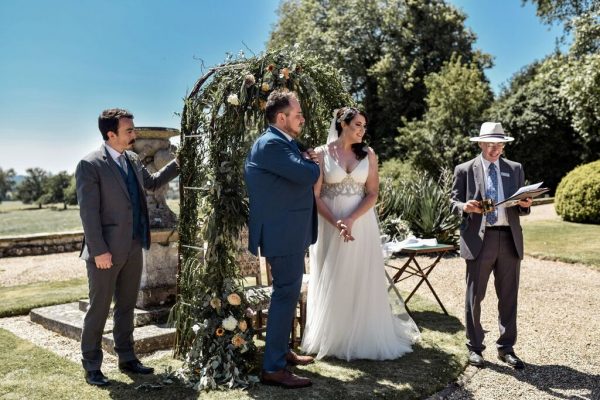Just as there may be flexibility about the roles at a wedding so there is often a little confusion.
Let’s see if we can uncloud the waters. As far as one can generalise, here are my guidelines.
Bride
The star turn – everybody looks forward to the bride walking down the aisle. In essence, looking beautiful and stunning are her main roles at the ceremony. Of course, she may be reciting vows and exchanging rings, kissing the groom and, possibly, signing a certificate, but these are surely not too arduous tasks!
Otherwise, the bride will have a role in welcoming guests after the ceremony and, just possibly, delivering a speech at the reception.
Groom
The groom’s roles are not too taxing either, in truth. He will have to welcome guests as they arrive for the ceremony and liaise with his team (Best Man, Ushers, Wedding Planner and Officiant), as necessary.
The Groom may have an active role to play in the ceremony (again, reading vows, putting a ring on the bride’s finger, kissing her, etc.). but his main task will probably be the speech at the Reception.
Best Man (or Woman)
The main task here is looking after the Groom. That involves carrying out any last-minute tasks for him (that might include simply fetching a glass of water or sorting something with a supplier). It certainly involves putting the groom at ease as much as possible before the ceremony begins.
One responsibility is usually to look after the rings until the exchange takes place.
People tend to look forward to the Best Man’s speech at the Reception. This should be humorous, anecdotal, not over-long, and not too cringe-making or offensive.
Bridesmaids and Ushers (Groomspersons)
These may often be youngsters, and need coaching, but they too should support the couple. The ushers will probably direct guests to their seats. Along with the bridesmaid(s), they will typically be part of the procession (and recession). Ushers may also have to look after presents for the couple.
Parents
The parents’ role is mostly to welcome guests and accept congratulations. Traditionally, the father of the bride sets the Reception off by giving a very short speech. This may include gratitude at finding such a groom and thanking guests for coming, wishing them a wonderful time.
Celebrant
On the day, the celebrant is responsible for the smooth running of the ceremony. They should direct proceedings with dignity, humour and affection.
They should arrive punctually and ensure everything is in place and that the groom is (reasonably) calm.
When all that is in place, then you have a great infrastructure for the big occasion.
Feel free to approach me for more information.
photo: taraflorence.com

